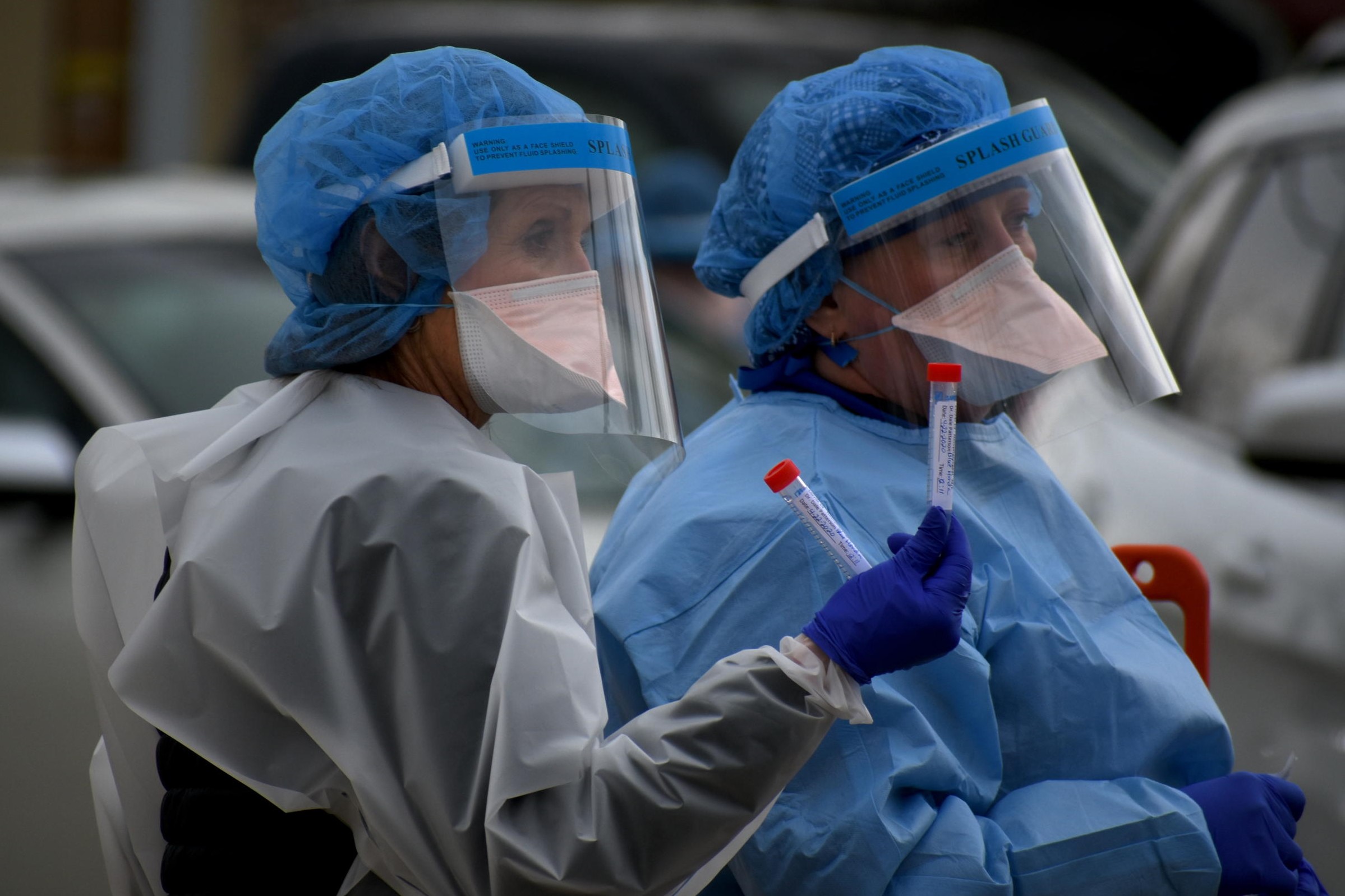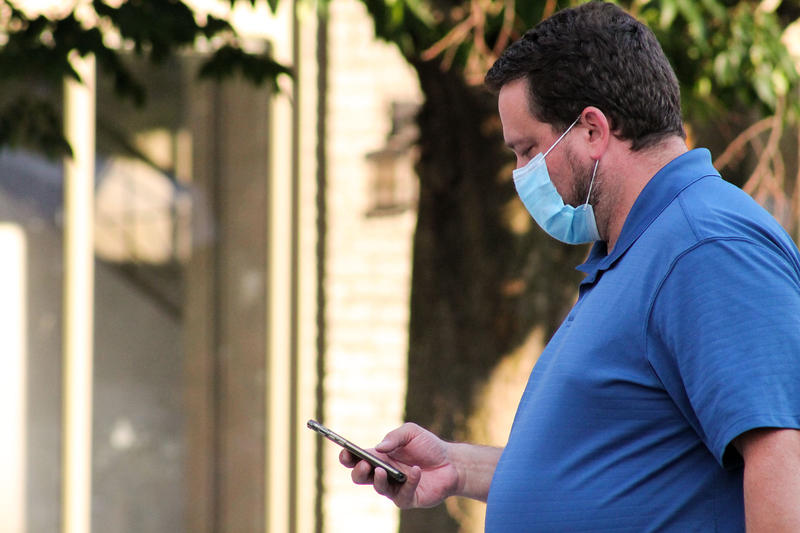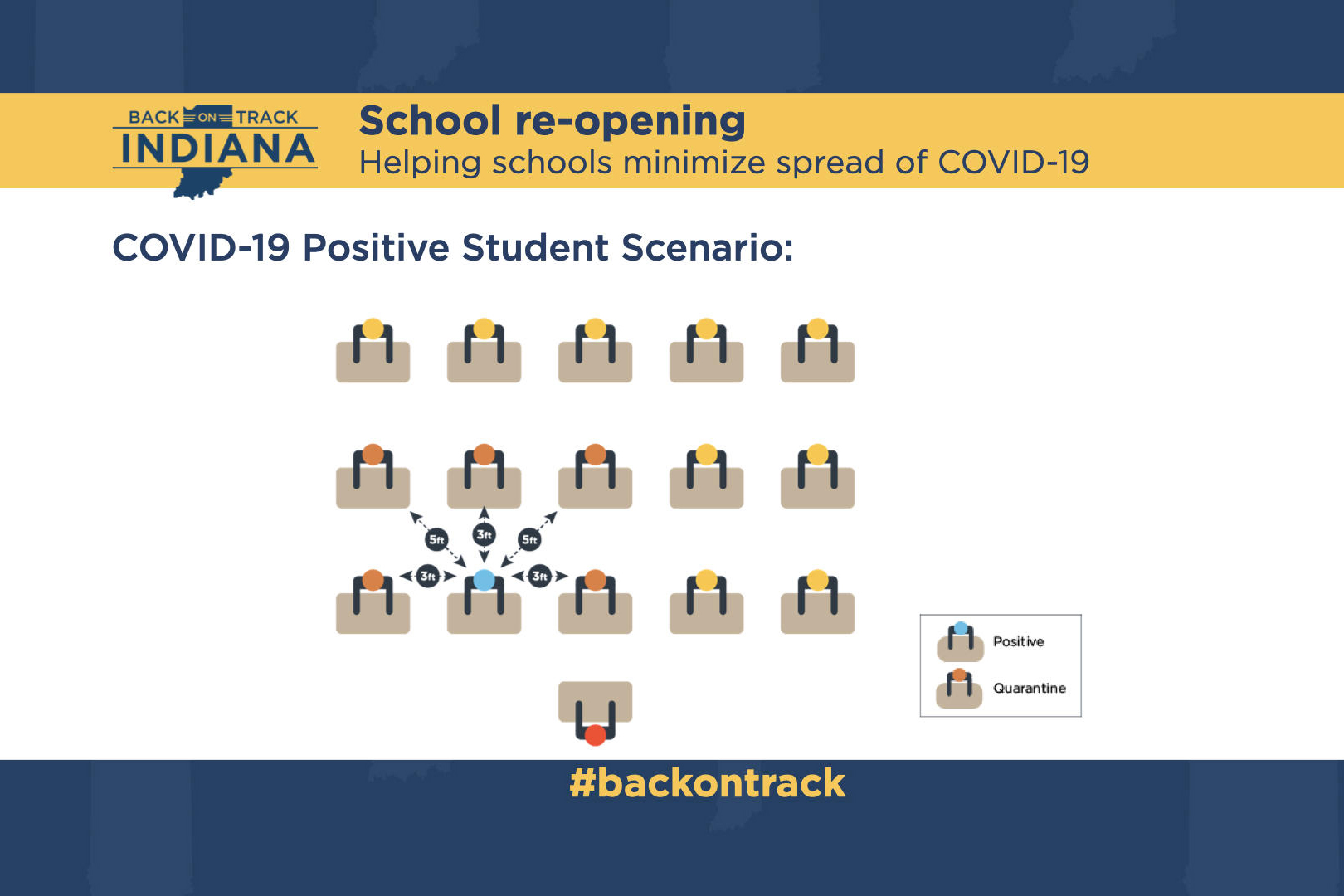
Industry leaders say workers shouldn't have to travel long distances for routine testing. (Justin Hicks)
Leah Drayton has been a professional caregiver for 13 years; she is cautious by nature.
“I’ve only been to the grocery store once since March 8th. My husband and my son do all the grocery shopping. You know, I take it really seriously,” she says.
Drayton is working as a certified nursing assistant on a temporary license at Bell Trace retirement community in Bloomington. She is also studying to be a nurse at Ivy Tech.
COVID-19 has killed over 1,200 Hoosiers in long-term care facilities since the outbreak began.
“I just feel like it’s my duty as a healthcare provider to watch what I do so I don't endanger the other populations,” she said in late June, as nursing homes began reopening to the public.
But there is only so much Drayton can do to keep patients safe.
It is up to management at long-term care facilities such as Bell Trace to determine when and how often its workers should get tested for COVID-19. Drayton said that all workers and residents there were tested early on, but the facility no routine testing program for employees followed.
Drayton said she was not the only healthcare worker who felt uncomfortable with the ambiguity.
“That's kind of one of the things that's frustrating for me,” she says. “And I'm just curious. There hasn't been like an official notice of how often we need to be tested.”
READ MORE: Indiana Will Begin Releasing Facility-Level Data From Nursing Homes
Bell Trace did not immediately respond to inquiries about changes to its testing guidelines over the past month.
There is now national guidance for reopening long-term care facilities to the public.
But industry leaders say long-term care facilities are struggling to meet the guidelines set by the Centers for Medicare & Medicaid Services.
“The reopening of nursing homes — at least from CMS’s perspective — is predicated on staff testing,” said Zach Cattell, president of the Indiana Center for Assisted Living-Indiana Healthcare Association, which represents hundreds of facilities.
“Testing every staff member weekly, and then testing any resident who is either symptomatic or is in a facility where a staff member has tested positive. And the testing capacities cannot keep up with that,” Cattell said.
“It's been clear for many weeks that the ability to obtain that level of testing in an efficient way just doesn't exist.”
Healthcare providers say they need better access to in-house testing, first and foremost. Workers should not have to travel to get tested every week or two.
The other factor is cost. Tests are expensive. Cattell says the state should be paying a larger share to offset the burden on care facilities. He says the current plan is unaffordable.
READ MORE: State Told Local Health Departments How To Hide Long-Term Care Data
But one Indiana mayor says the costs of testing are reasonable compared to a COVID-19 patient’s hospital bill.
“When you look at the cost, one hospitalization being probably in excess of $125,000, that buys a lot of tests. You've got to look at the alternative,” Jim Brainard, mayor of Carmel, said Monday.
“And that's just the fiscal side. The more important side is we're talking about people's lives,” he said.
Carmel began aggressively testing government workers and first responders early in the crisis.
The mayor says the city has already spent several hundred thousand dollars on testing alone.
“Some of the nursing homes and some of the assisted living centers started testing their staff immediately,” Brainard said. “We really encouraged them to do it because that's the most vulnerable part of our population, the people in nursing homes and assisted living.”
READ MORE: How Does COVID-19 Spread To Nursing Homes During Lock Down?
Others are taking a more conservative approach.
IU Health’s approach is not to test most workers unless they are showing symptoms of COVID-19.
“Our current policy is that we're only testing symptomatic individuals. And the reason is we don't really know what the tests mean in someone who's asymptomatic,” Dan Handel, chief medical officer for IU Health’s south-central region, said Monday.
Handel said that it was unclear how useful it was for workers to know whether or not they were asymptomatic carriers two days out of a month, or one day out of a week.
What is all-but-settled science is that wearing a mask greatly reduces the chance of spreading the virus.
“The most effective thing for all of us to do now, whether you're in the healthcare setting or not, is to focus on universal masking, in settings where you cannot have social distancing,” he said.
Handel says IU Health does routinely test certain healthcare workers. Surgeons are tested before they perform elective procedures, for example.
His advice for healthcare workers such as Leah Brayton and her patients is to mask up.
Brock Turner contributed to this report.
For the latest news and resources about COVID-19, bookmark our Coronavirus In Indiana page here.










